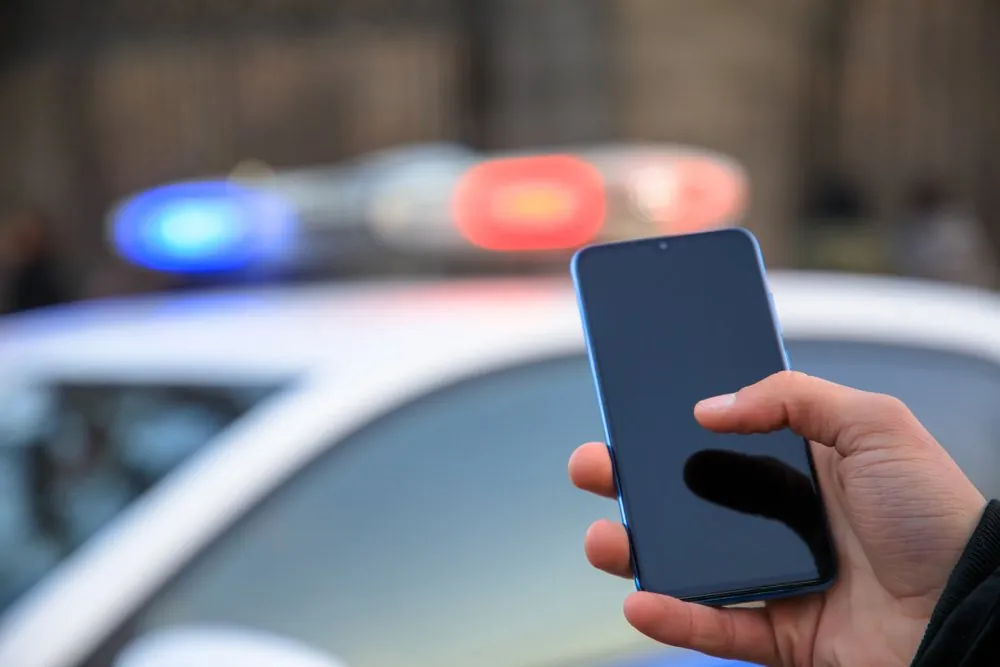In today’s age of constant connectivity, our smartphones hold a vast trove of personal information. This raises a crucial question: what legal rights do we have regarding police searches of our phones during traffic stops in Florida? Navigating this complex legal landscape can be confusing, but understanding your rights is essential to protect your privacy. This article delves into the legalities surrounding phone searches during traffic stops, outlining the current state of the law, potential exceptions, and practical advice for interacting with police.
1. The General Rule: Warrant Required
As a fundamental principle of American law, the Fourth Amendment guarantees protection against unreasonable searches and seizures. This extends to your phone, which courts have recognized as a repository of sensitive personal information. In Florida, as in most states, police generally need a warrant to search the contents of your phone during a traffic stop. This means they need prior approval from a judge based on probable cause, demonstrating a legitimate reason to believe the phone contains evidence of a crime.
Source – govtech.com
2. Exceptions to the Warrant Requirement
Several exceptions exist to the warrant requirement, allowing police to search your phone without a warrant under specific circumstances:
- Consent: If you freely and voluntarily give your consent, police can search your phone without a warrant. However, remember that you have the right to refuse, and your refusal cannot be used against you in court.
- Incident to Arrest: If you are arrested for a crime, police can seize your phone as part of the arrest process. However, they still need a warrant to access the contents.
- Exigent Circumstances: If police believe there is an immediate threat of danger or evidence being destroyed, they may search your phone without a warrant. This could include situations where your phone is suspected to be used for communication in a crime in progress.
3. Important Caveats
It’s crucial to understand the limitations of these exceptions:
- Consent must be truly voluntary: Police cannot pressure or coerce you into consent. If you feel pressured, politely decline and ask for legal representation.
- Incident to arrest does not equate to automatic access: Even after arresting you, police need a warrant to delve into your phone’s content.
- Exigent circumstances are narrowly defined: Courts scrutinize claims of exigent circumstances, requiring compelling evidence of immediate danger.
4. Tips for Protecting Your Privacy During Traffic Stops
Knowing your rights is vital, but here are some practical tips for interacting with police during a traffic stop:
- Be polite and cooperative, but don’t feel obligated to answer questions beyond the scope of the stop.
- If asked about your phone, politely inform the officer that you understand your right to refuse a search without a warrant.
- Avoid giving consent to search unless you fully understand the implications and feel comfortable doing so.
- If you feel pressured, politely but firmly state your desire to speak with an attorney.
- Remember, you can always record the interaction for your own protection.
Source:-
- The American Civil Liberties Union (ACLU): https://www.aclu.org/
- The Florida Bar Association: https://www.floridabar.org/
- The Electronic Frontier Foundation (EFF): https://www.eff.org/
FAQ’s
Q: What should I do if the officer insists on searching my phone even after I refuse consent?
A: Remain calm and polite, reiterating that you do not consent to a search. You can also request the officer to provide their reasoning for believing a warrantless search is justified. However, it’s essential to understand that resisting or obstructing an officer can lead to additional charges. If you feel uncomfortable or unsure, calmly state your desire to speak with an attorney.
Q: Can the officer take and hold my phone for later investigation?
A: Yes, the officer can temporarily seize your phone as evidence if they have probable cause to believe it contains evidence of a crime. However, they cannot access the contents without a warrant, and they must return the phone promptly if no evidence is found.
Q: What’s the difference between searching and unlocking my phone?
A: Searching typically refers to accessing the phone’s data, while unlocking only involves bypassing the passcode or fingerprint security. A warrant is generally required for both actions. However, some courts have ruled that even unlocking the phone without accessing data can constitute a search if it reveals private information like call history or contacts.
Q: Can I delete information from my phone before allowing a search?
A: While you have the right to refuse consent and protect your privacy, attempting to delete information during a traffic stop could be misconstrued as obstructing justice. If you are concerned about specific content, consult with an attorney regarding your options.
Q: What if I have encrypted messages or apps on my phone?
A: Encryption offers additional protection for your data. Police may face legal hurdles and require stronger justification to access encrypted content, potentially involving obtaining a warrant with higher standards. However, courts are currently grappling with evolving technologies and encryption methods, so the legal landscape in this area may change.
Conclusion
While your phone contains sensitive information, the law protects you from unwarranted searches during traffic stops. Familiarize yourself with the general rule of warrant requirement, understand the exceptions, and equip yourself with practical tips for interaction. By asserting your rights politely and proactively, you can safeguard your privacy and ensure that any police search adheres to legal standards.
Note: This article provides general information and should not be considered legal advice. If you face a situation where police want to search your phone during a traffic stop, consult with an attorney to understand your specific rights and options.

